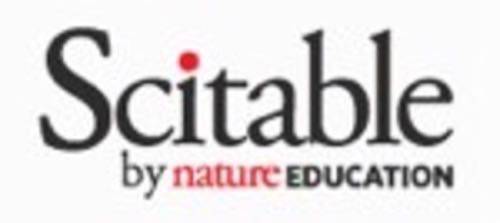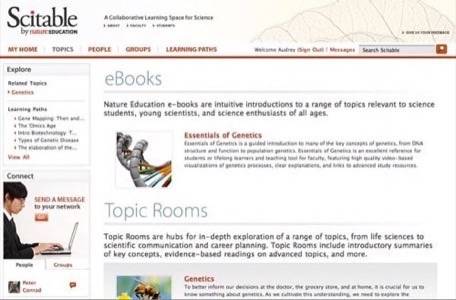Over 40% of undergraduates who start their college careers as prospective science majors have changed their minds by the time they graduate, switching their majors to a non-science degree. According to Vikram Savkar, the Senior Vice President of the science education site Scitable, it’s imperative we address that high attrition rate as there is a global shortage of scientists, a serious problem considering many of the challenges we face now and in coming years that require scientific research and discovery.

Scitable hopes to address that by changing the way science is taught, with an emphasis less on memorization and more on experimentation.
Scitable is an online learning space that’s part of Nature Education, the educational wing of the global science publisher Nature Publishing Group, the publishers of Nature, Scientific American and about 70 other magazines. Long one of the leading publishers of scientific research (Scientific American is the oldest continually published magazine in the U.S.), the company’s move to science education is fairly recent. Scitable was founded in 2009 and now reaches more than 500,000 science students in over 165 countries.
Scitable offers a library of science education resources, along with classroom management tools and a community of scientists, instructors, and students. The resources that are available on the site are all free, peer-reviewed, and updated every other month or so, something no print science textbook can boast. Many noted scientists participate in the site as part of their grant requirements to address the “Broader Impact” of their research. These scientists make themselves available as experts and mentors for students on the site.
In August, Scitable launched mobile versions of its site, opting not to create apps but to design the site to be used on any cell phone. “Our mission is to democratize access to science education,” says Savkar. And while students accessing the site on an iPhone or iPad, for example, can get a media-rich experience, the site is still accessible by those with the simplest of cell phone browsers, a strategy aimed towards making the content on the site accessible to those in the developing world with limited or no access to broadband. Savkar says that while half the students on the site are from the U.S. and Europe, the rest are from other countries.
Currently, the site is only available in English, and Savkar says that the company is working on a translation strategy. Additional content, including cell biology and ecology, is also in the works.


















